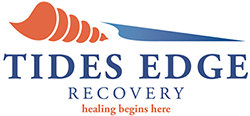When you become dependent on MDMA (aka ecstasy), you can experience painful and uncomfortable MDMA withdrawal symptoms, which makes it difficult to quit without help. Addiction and substance abuse disorders can cause financial, relationship, and legal problems, making it important to reach out for help from a drug addiction detox center in FL.
At Tides Edge Detox Center, we’re committed to helping our clients take their first step toward sobriety. With the help of our detox program, you can overcome your addiction to MDMA. To learn more about substance abuse detox treatment, please contact Tides Edge Detox Center today at 866.723.3127.
What Is Ecstasy Withdrawal?
MDMA withdrawal can make it difficult to quit without help. You can experience painful, uncomfortable, and overwhelming symptoms such as:
- Depression and anxiety
- Restlessness
- Insomnia and exhaustion
- Disorientation and confusion
How Long Do Ecstasy Withdrawal Symptoms Last?
Withdrawal symptoms typically last for several days. However, with a combination of medications, therapy, and holistic remedies, we can help you manage the withdrawal process safely. MDMA withdrawal causes intense enough symptoms to make it difficult to detox without relapsing. Once you complete detox, an outpatient or inpatient treatment center can help guide you through the early recovery process and increase your chances of sustaining long-term sobriety and abstinence.
Once your brain associates MDMA use with pleasure, your brain’s reward center begins rewarding MDMA use with a rush of pleasurable neurotransmitters. When you don’t use this substance, your brain restricts the release of neurotransmitters. If you immediately stop using MDMA, you can begin to experience MDMA withdrawal symptoms within 24 hours of your last use, making it difficult to stop using without the help of a stimulant detox center program.
What Is Ecstasy?
Ecstasy/MDMA is a type of central nervous system stimulant that creates euphoria and produces energizing effects. When you use MDMA, your brain releases a rush of serotonin, dopamine, and noradrenaline. MDMA causes:
- Increased energy and heart rate
- Hallucinogenic effects
- Lowered inhibitions
- Increased sexual desire
- Connectedness with others
MDMA is a common party drug among young adults at events like raves and music festivals. Many people don’t know that MDMA was originally used to treat depression in the late 1970s and early 1980s. However, widespread abuse resulted in the Drug Enforcement Agency (DEA) issuing an emergency Schedule 1 classification in 1985. The classification meant that MDMA was banned from medical use.
MDMA can come in a crystal, powder, or pill form. Powdered MDMA is typically referred to as molly, while MDMA in a pill form is referred to as ecstasy. Users typically orally ingest or inhale MDMA. MDMA is highly addictive.
How to Detox from Ecstasy Safely
Addiction and substance abuse problems can cause damaging consequences. Addiction also makes it difficult to quit using without help from a treatment center. When you become addicted to MDMA, MDMA withdrawal and intense cravings to use can become overwhelming. However, with the help of our detox center, you can receive the support, guidance, and understanding you need to recover. We offer a range of therapeutic services to assist in the detox process, such as:
Cognitive-Behavioral Therapy
Cognitive-behavioral therapy helps individuals recognize and challenge the thoughts and behaviors that lead to substance use. During the course of treatment, individuals learn how to identify their triggers for using substances, develop healthier coping skills, and set goals for their recovery.
Dialectical Behavior Therapy
Dialectical behavior therapy (DBT) is an evidence-based treatment approach designed to help individuals struggling with addiction and other mental health issues. DBT focuses on teaching clients mindfulness, emotional regulation, distress tolerance, and interpersonal effectiveness.
Individual Therapy
Individual therapy focuses on one-on-one counseling sessions with a therapist. During these sessions, individuals can discuss their thoughts, feelings, and experiences in a safe and supportive environment.
Group Therapy
Group therapy involves counseling several people at once in an effort to support one another and foster positive change. During group therapy, members can discuss their experiences and learn from each other’s struggles.
Yoga Therapy
Yoga therapy helps individuals build positive relationships with themselves. This therapy helps individuals reconnect with their bodies, minds, and emotions through physical activity, breathing exercises, and relaxation techniques.
FAQs about Ecstasy Withdrawal
Can Withdrawal Symptoms Be Managed at Home?
While mild withdrawal symptoms might be manageable at home, it’s crucial to consult a medical professional before attempting detox. Severe symptoms can be challenging to handle without assistance, and support from a detox program enhances safety and increases the likelihood of a successful recovery.
Why Is Professional Detox Important?
Professional detox at Tides Edge Detox Center provides a structured environment with medical supervision to safely manage withdrawal symptoms. Access to supportive therapies and medications tailored to individual needs can alleviate discomfort and help prevent relapse during the withdrawal process.
What Happens After Detox?
After completing detox, it’s important to continue with ongoing treatment programs, such as inpatient or outpatient rehab at our sister facility, Beaches Recovery, to address the psychological aspects of addiction and help maintain sobriety. This can include various therapies, support groups, and relapse prevention education.
Get the Help You Need Today From Tides Edge Detox Center
Are you ready to put your MDMA use behind you? Call Tides Edge Detox today at 866.723.3127, or use our online contact form to find out more about your treatment options.









